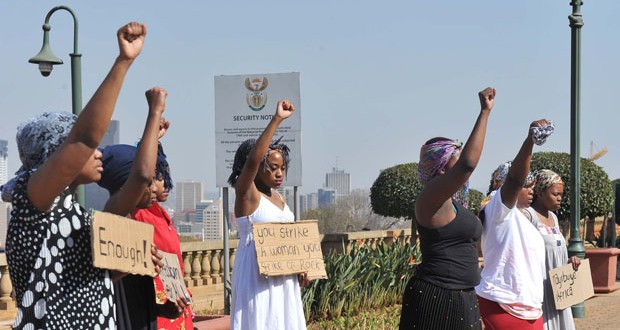As 16 days of activism comes to a close, we look at five prolific women who are working to ensure that addressing violence against women remains a priority throughout the year. AAISHA DADI PATEL rounds up.
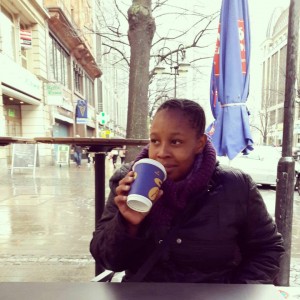
As the founder of Amandla.mobi, an online activist platform, Moeti is a keen advocate for social justice. With her views rooted in intersectionality – the belief that issues concerning equality cannot be looked at in isolation – Moeti says that the mandate of all of the campaigns that Amandla.mobi undertakes is centred around women and that undoing structural violence is one of the reasons that she founded this platform.  “Women are primary caregivers, so any structural violence is violence against women,” she says.
Moeti says that black women remain the most marginalised group in society. “Making room for the varying experiences of the black women and just advocating for accessibility is one of our main aims through the work that we do; it’s the continuous struggle for us to be allowed to be who we are and the continuous struggle for black women in their various forms,” she says.
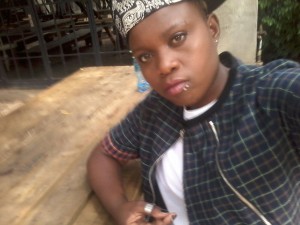
Mofokeng runs an organisation called Tisa-Tshireletso through which she collaborates with other organisations to raise awareness about the issues that black lesbians face, and provides counselling training and services.
She is deeply involved in raising awareness around the issues that black lesbian women face in townships, particularly younger women who still attend school.
“We create workshops and dialogues and have marches. We also provide a lot of support to young, black lesbians who have difficulties being able to be who they are,” she says.
“There is a lot of homophobia and discrimination within the community. Black lesbians face a lot of dangers, including corrective rape. There is a lot of police brutality and victimisation, particularly in Vosloorus – a lot of girls get raped, but they know that their cases will never reach the court. This is where we come in, and try to help as much as we can.”
Mofokeng is also currently challenging the department of higher education over the discrimination faced by lesbian or gender non-conforming schoolgirls who are required to wear dresses as part of school uniform by rules of conduct at schools, even though they may not want to.
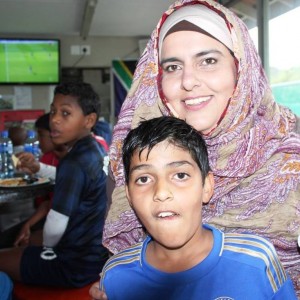
Asmal, who is based in Durban, runs a number of programmes through her organisation ILM-SA to empower women from abused and troubled backgrounds, including helping women to start their own businesses so that they can be self-sufficient
“It’s about letting women know that they don’t have to be in despair, and can be empowered and have access to pursue their dreams and ambitions,” she says, adding “There is so much that [women] can do – not for a man, not for anyone else – but for themselves.”
Asmal sees it as her Islamic duty to help those in need. “Helping people is a God-given responsibility. I come from an abused background myself, so I recognise what it feels like to be at rock bottom and helpless, and feel that there is nothing further to aspire towards,” she says.
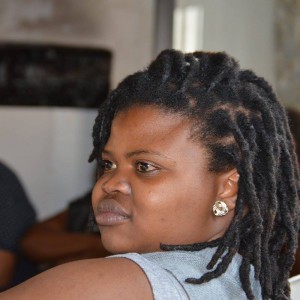
As the women’s rights and gender justice programmes manager for Oxfam South Africa, Kwezilomso Mbandazayo is vocal about how narratives concerning those who are affected by domestic and gender-based violence – particularly women – need to be changed.
“The state consistently wants to depoliticise the issue of gender-based violence – there is no real interest in getting to the actual causes and the things that enable domestic violence to continue,” she says.
By running programmes, workshops and other initiatives through Oxfam South Africa, Mbandazayo hopes to raise awareness of and resistance to issues of gender violence. She believes those who are affected should be enabled to empower themselves and remove themselves from harmful situations.
“Women are always painted as victims but are never empowered or afforded the agency to take control of their own revolt – the focus is always on someone needing to ‘save’ you … This narrative of being protected takes away from the fact that someone is perpetrating, and it’s the perpetration that needs to stop. Acts of resistance happen every day and through my work, through speaking out, that’s what I am trying to do.”
RELATED: Watch The Daily Vox discussing gender-based violence with Kwezilomso here.
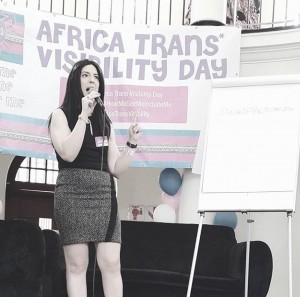
Dr Anastacia Tomson is an advocate for the rights of transgender people and works to raise awareness of the challenges transgender people face.
Tomson, a a transgender woman and qualified medical doctor, is currently unable to practise medicine as she’s awaiting new ID documents.
“Every script that I issue has a legal requirement that I sign it, and my ID application has been pending for seven months,” she says.
But this hasn’t held her back. She conducts sensitisation training on issues such as violence and discrimination against transgender people with people from different parts of Africa. She’s also founded the Professional Alliance Combating Transphobia (Pact), which brings together professionals who have an interest in advocating for the rights and freedoms of their transgender clients or patients.
Tomson says that trans women face a lot of stigma and don’t always receive the support that they need. “Locally there is a lot of stigma attached to being trans, there is a lot of hate crime but no firm figures attached to it. In the unfortunate event that someone experiences a lethal attack, it will often be misreported, so it’s not specifically classified as a crime towards a trans person,” she says.
She continues to advocate for gender-affirming public services and for the healthcare that trans people require to be more accessible.

